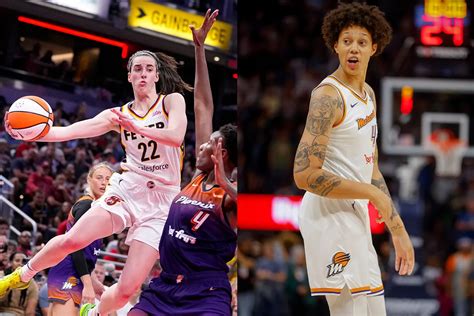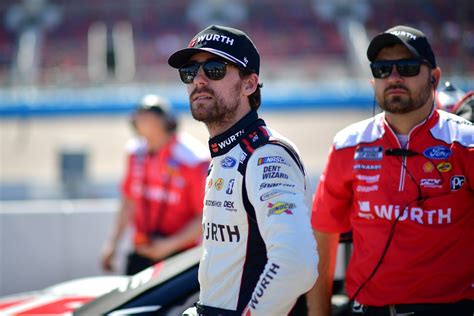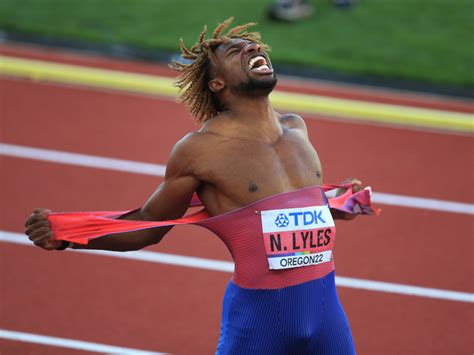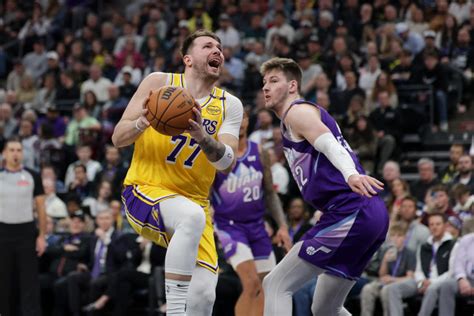
Brittney Griner’s recent comments regarding Caitlin Clark and the WNBA, including an alleged joke about Clark bringing more attention and lucrative opportunities to the league due to her race, have ignited a wave of criticism, particularly from conservative commentators and media outlets. The controversy centers on Griner’s perceived insinuation of racial bias within the WNBA and the broader sports landscape, fueling debates about race, privilege, and the treatment of athletes in professional sports.
Griner, a prominent WNBA player for the Phoenix Mercury, reportedly made the comments during a recent interview or public appearance. While the exact context and wording are debated, the essence of her statement suggested that Clark’s arrival and subsequent media attention were disproportionately driven by her being a “straight, white” player. This has been interpreted by many as a criticism of systemic biases that favor white athletes over their Black counterparts, even when performance metrics might suggest otherwise.
The backlash has been swift and intense, particularly within conservative circles. Critics accuse Griner of injecting racial division into a situation where Clark’s success is attributed to her skill and accomplishments. Some argue that Griner’s remarks are hypocritical, given her own high profile and endorsements, while others claim she is diminishing Clark’s achievements by attributing them to her race rather than her talent.
The situation is further complicated by the ongoing discussions about diversity, equity, and inclusion within professional sports. The WNBA, which has a predominantly Black player base, has been at the forefront of social justice advocacy, addressing issues such as racial inequality and LGBTQ+ rights. Griner’s comments have inadvertently reignited these debates, forcing a re-examination of the complexities of race, privilege, and representation in the sporting world.
The controversy also highlights the increasing politicization of sports, where athletes’ statements and actions are often scrutinized through a partisan lens. Conservative media outlets have amplified the criticism of Griner, framing her comments as an example of “woke” ideology infiltrating sports and undermining meritocracy. This narrative resonates with a segment of the population that believes social justice initiatives have gone too far and are unfairly targeting white individuals.
Conversely, some commentators and fans have defended Griner, arguing that she is simply pointing out the reality of racial bias in media coverage and endorsement deals. They contend that while Clark is undoubtedly a talented player, her race has likely contributed to the unprecedented level of attention she has received. This perspective aligns with broader discussions about the underrepresentation and undervaluation of Black athletes in various sports.
The WNBA itself has remained largely silent on the issue, likely wary of further exacerbating the controversy. However, the league’s players and coaches have long been vocal advocates for social justice, and the situation has undoubtedly sparked internal discussions about how to address issues of race and inequality within the league.
The long-term impact of Griner’s comments remains to be seen. However, the controversy has already served to amplify existing tensions and divisions within the sports community and the broader public. It has also highlighted the challenges of navigating complex issues of race, privilege, and representation in a highly polarized environment. The incident serves as a stark reminder of the power of athletes’ voices and the potential for their words to ignite passionate debates and shape public opinion.
Detailed Examination and Context
The furor surrounding Brittney Griner’s comments about Caitlin Clark extends beyond a simple disagreement over individual merit. It taps into deeply rooted societal conversations about systemic racism, media representation, and the economic disparities within professional sports. To fully understand the controversy, it is essential to dissect the various layers of context that inform the debate.
The Alleged Joke and Its Interpretation:
The heart of the controversy lies in the interpretation of Griner’s alleged joke. Reports suggest that she implied Clark’s race played a significant role in the heightened media coverage and endorsement deals she has secured since entering the WNBA. While the exact phrasing remains somewhat unclear, the implication was that Clark’s “straight, white” identity provided her with an advantage that Black players, even those with comparable or superior skills, might not receive.
This interpretation aligns with longstanding criticisms of media bias in sports. Studies have consistently shown that white athletes tend to receive more positive and extensive coverage than their Black counterparts, even when controlling for performance metrics. This bias can manifest in various ways, including more favorable framing, greater emphasis on personal stories, and more frequent appearances on national television.
Furthermore, endorsement deals often reflect broader societal biases. Companies tend to gravitate towards athletes who are perceived as relatable and marketable to a wide audience, and these perceptions are often shaped by racial and gender stereotypes. Black athletes, particularly Black women, may face additional barriers in securing lucrative endorsement deals due to these biases.
The Conservative Backlash:
The conservative backlash against Griner’s comments is rooted in a broader rejection of “woke” ideology and identity politics. Conservative commentators often argue that discussions about race and privilege are divisive and harmful, and that they undermine the principles of meritocracy and individual achievement.
In the context of sports, this perspective translates into a belief that athletes should be judged solely on their performance, and that factors such as race and gender should be irrelevant. Critics argue that Griner’s comments are an attempt to diminish Clark’s accomplishments by attributing them to her race rather than her talent.
Moreover, some conservatives have accused Griner of hypocrisy, pointing to her own high profile and endorsement deals as evidence that she has benefited from the same system she is criticizing. They argue that she is unfairly targeting Clark, who is simply a talented player who is receiving the attention she deserves.
The Defense of Griner’s Perspective:
Conversely, defenders of Griner’s perspective argue that she is simply speaking truth to power and shining a light on uncomfortable realities. They contend that while Clark is undoubtedly a talented player, it is disingenuous to ignore the role that race plays in shaping media coverage and endorsement opportunities.
They point to historical examples of Black athletes who were overlooked or undervalued despite their exceptional skills. They argue that systemic racism continues to permeate the sports industry, and that it is important to acknowledge and address these biases in order to create a more equitable playing field.
Furthermore, defenders of Griner emphasize that she is not diminishing Clark’s achievements, but rather raising awareness about the broader context in which those achievements are recognized and rewarded. They argue that it is possible to celebrate Clark’s success while also acknowledging the systemic biases that may contribute to her elevated profile.
The WNBA’s Stance and Internal Discussions:
The WNBA has been at the forefront of social justice advocacy, consistently supporting its players in speaking out against racial inequality and other forms of discrimination. However, the league has remained largely silent on the specific controversy surrounding Griner’s comments.
This silence is likely a strategic decision, aimed at avoiding further polarization and maintaining a focus on the league’s broader goals. The WNBA is a relatively small league, and it relies on the support of a diverse fan base. Engaging directly in the controversy could alienate certain segments of that fan base and undermine the league’s financial stability.
However, it is highly likely that the controversy has sparked internal discussions within the WNBA. Players and coaches are likely grappling with the complexities of race, privilege, and representation, and exploring ways to address these issues within the league.
The Politicization of Sports:
The controversy surrounding Griner’s comments is a stark example of the increasing politicization of sports. Athletes are no longer simply athletes; they are also public figures whose words and actions are scrutinized through a partisan lens.
Conservative media outlets have amplified the criticism of Griner, framing her comments as an example of “woke” ideology infiltrating sports and undermining meritocracy. This narrative resonates with a segment of the population that believes social justice initiatives have gone too far and are unfairly targeting white individuals.
Conversely, liberal media outlets have largely defended Griner, portraying her as a courageous voice speaking out against systemic racism. This narrative aligns with a segment of the population that believes social justice initiatives are necessary to create a more equitable society.
The politicization of sports makes it increasingly difficult for athletes to express their views without facing intense scrutiny and criticism. It also contributes to a climate of division and polarization, where even seemingly innocuous comments can be interpreted as political statements.
The Long-Term Impact:
The long-term impact of Griner’s comments remains to be seen. However, the controversy has already served to amplify existing tensions and divisions within the sports community and the broader public. It has also highlighted the challenges of navigating complex issues of race, privilege, and representation in a highly polarized environment.
The incident serves as a stark reminder of the power of athletes’ voices and the potential for their words to ignite passionate debates and shape public opinion. It also underscores the importance of engaging in respectful and nuanced conversations about race and inequality, even when those conversations are uncomfortable or challenging.
Moving forward, it is essential for the sports community to create a more inclusive and equitable environment for all athletes, regardless of their race, gender, or sexual orientation. This requires acknowledging and addressing systemic biases, promoting diversity and representation, and fostering open and honest dialogue about difficult issues.
The Role of Social Media:
Social media has played a significant role in amplifying the controversy surrounding Griner’s comments. Platforms like Twitter and Facebook have provided a space for individuals to express their opinions, share their perspectives, and engage in debates about race, privilege, and representation.
However, social media has also contributed to the polarization of the debate. The anonymity afforded by online platforms can embolden individuals to make inflammatory or offensive comments, and the algorithms that govern social media feeds can create echo chambers where users are only exposed to perspectives that align with their own.
In the context of the Griner-Clark controversy, social media has been used to spread misinformation, amplify hateful rhetoric, and attack individuals on both sides of the debate. This has made it difficult to engage in respectful and nuanced conversations about the issues at stake.
The Importance of Context and Nuance:
Throughout the controversy, it has been crucial to consider the context and nuance of Griner’s comments. Attributing malicious intent or deliberately misinterpreting her words only exacerbates tensions and prevents meaningful dialogue. A fair assessment requires understanding the complexities of the issues she was addressing and acknowledging the validity of different perspectives.
Similarly, it is important to avoid generalizations and stereotypes. Not all conservative commentators share the same views, and not all supporters of social justice initiatives agree on every issue. Treating individuals as monolithic groups only reinforces divisions and prevents meaningful engagement.
Moving Forward: Fostering Dialogue and Understanding:
Ultimately, the goal should be to foster dialogue and understanding. The Griner-Clark controversy provides an opportunity to engage in open and honest conversations about race, privilege, and representation in sports. This requires listening to different perspectives, acknowledging the validity of different experiences, and working together to create a more inclusive and equitable environment for all athletes.
This also requires media outlets to exercise responsible journalism and avoid sensationalizing or misrepresenting the issues at stake. The focus should be on providing accurate and nuanced information, fostering informed debate, and promoting understanding and empathy.
Frequently Asked Questions (FAQ)
1. What exactly did Brittney Griner say about Caitlin Clark?
Reports indicate Griner made a comment, allegedly a joke, implying that Caitlin Clark’s race (being “straight, white”) contributed significantly to the high level of media attention and endorsement deals she received upon entering the WNBA. The exact wording is debated, but the essence was a suggestion of racial bias in favor of Clark.
2. Why did Griner’s comments spark such a strong reaction, particularly from conservatives?
The comments were perceived by many conservatives as an accusation of racial bias and an attempt to diminish Clark’s achievements by attributing them to her race rather than her talent. This aligns with a broader conservative critique of “woke” ideology and identity politics, which they believe undermines meritocracy.
3. What is the argument from those who defend Griner’s perspective?
Defenders argue that Griner was simply pointing out the reality of systemic biases in media coverage and endorsement deals within sports. They believe that while Clark is undoubtedly talented, her race likely contributed to the unprecedented level of attention she received, and that it’s important to acknowledge this context.
4. What has been the WNBA’s official response to the controversy?
The WNBA has remained largely silent on the specific controversy. This is likely a strategic decision to avoid further polarizing the situation and to maintain focus on the league’s broader goals, given its diverse fan base and its historical stance on social justice issues.
5. How has social media influenced the Griner-Clark controversy?
Social media has amplified the controversy, providing a platform for individuals to express opinions and engage in debates about race, privilege, and representation. However, it has also contributed to polarization, with the spread of misinformation, hateful rhetoric, and attacks on individuals on both sides of the debate.
6. What is the broader context surrounding Griner’s comments about racial bias in sports media and endorsements?
Numerous studies have indicated a bias in sports media where white athletes receive more favorable and extensive coverage than Black athletes, regardless of comparable performance metrics. Endorsement deals are also influenced by perceptions of relatability, often shaped by racial and gender stereotypes, presenting barriers for Black athletes, especially Black women.
7. How do differing political perspectives play into the interpretation of Griner’s remarks?
Conservative media often framed Griner’s remarks as an example of “woke” ideology undermining meritocracy in sports, appealing to those who believe social justice has gone too far. Conversely, liberal media largely defended Griner, portraying her as a courageous voice against systemic racism, aligning with those advocating for equity.
8. How does the history of social justice advocacy within the WNBA influence the context of this controversy?
The WNBA has a strong history of social justice advocacy, with players often speaking out against racial inequality and other forms of discrimination. This history provides a backdrop against which Griner’s comments are viewed, highlighting her consistent stance on social issues, but also placing the league in a difficult position of needing to balance support for its players with broader public relations concerns.
9. What are some historical examples of racial bias impacting Black athletes in professional sports?
Historically, many Black athletes have been overlooked or undervalued despite exceptional talent. Examples include Jackie Robinson facing immense racial prejudice while breaking the color barrier in baseball, and numerous instances where Black athletes have received less media attention and fewer endorsement opportunities compared to their white counterparts with similar performance records.
10. What challenges arise from politicizing sports, as seen in the Griner-Clark controversy?
Politicizing sports makes it difficult for athletes to express views without facing intense scrutiny and criticism, contributing to division. Even seemingly innocuous comments can be misinterpreted as political statements, leading to heightened polarization and hindering meaningful conversations about complex issues.
11. What steps can be taken to foster a more inclusive and equitable environment in sports?
Creating a more inclusive environment requires acknowledging and addressing systemic biases, promoting diversity and representation, and fostering open dialogue about difficult issues. This includes fair media representation, equitable endorsement opportunities, and support for athletes who speak out against injustice.
12. What is the role of responsible journalism in covering controversies like this one?
Responsible journalism is essential for providing accurate and nuanced information, fostering informed debate, and promoting understanding and empathy. Media outlets should avoid sensationalizing or misrepresenting issues, and should strive to present different perspectives fairly and with context.
13. How do social media algorithms and echo chambers contribute to the polarization of such debates?
Social media algorithms often create echo chambers where users are primarily exposed to perspectives aligning with their own, reinforcing existing biases. This polarization hinders constructive dialogue and makes it difficult to engage in respectful conversations, especially when dealing with sensitive topics like race and privilege.
14. What is the significance of considering the context and nuance behind Griner’s comments rather than rushing to judgment?
Considering context avoids misinterpretations, promotes fairness, and allows for meaningful dialogue. Attributing malicious intent without fully understanding the complexities of the issues only exacerbates tensions and prevents constructive conversations about systemic issues.
15. How can individuals and the sports community contribute to fostering dialogue and understanding in the aftermath of this controversy?
Individuals can contribute by listening to different perspectives, acknowledging varied experiences, and promoting respectful conversation. The sports community can support initiatives aimed at creating a more inclusive environment, promoting diversity, and encouraging open dialogue on race and inequality.
16. How do intersectionality and multiple marginalized identities play a role in understanding the complexities of the Griner-Clark situation?
Intersectionality, the interconnected nature of social categorizations such as race, class, and gender, creates overlapping systems of discrimination. As a Black, gay woman, Griner may experience different forms of bias compared to a white, heterosexual athlete. This complexity needs consideration to fully appreciate the dynamics involved in her critique.
17. What are some practical steps the WNBA could take to address concerns about equity and representation within the league?
The WNBA could implement initiatives like diversity training for staff and players, mentorship programs for Black athletes seeking endorsement deals, and increased investment in marketing campaigns that showcase the diversity and talent within the league. Independent audits of media coverage could also identify areas of bias.
18. How might this controversy affect Caitlin Clark’s experience as a WNBA player, both positively and negatively?
Positively, the debate highlights the spotlight on the WNBA, indirectly benefiting all players. Negatively, Clark might face unwarranted criticism or pressure from those who feel she’s unfairly benefiting from her race. However, it could also provide her with a platform to advocate for greater equity and inclusion in the league.
19. What are the long-term implications if issues of racial bias in sports media and endorsements are not addressed?
Failure to address racial bias will perpetuate inequities, limiting opportunities for Black athletes and reinforcing stereotypes. This can stifle diversity and innovation within the sport, ultimately harming the league’s growth and relevance.
20. How can fans and spectators contribute to creating a more equitable and inclusive atmosphere within professional sports leagues?
Fans can actively support diverse athletes, challenge discriminatory behavior, and engage in constructive dialogue about issues of race and inequality. Boycotting events or sponsors linked to bias can also be a powerful form of advocacy. Promoting respectful discourse and holding media outlets accountable for equitable coverage are also crucial steps.









